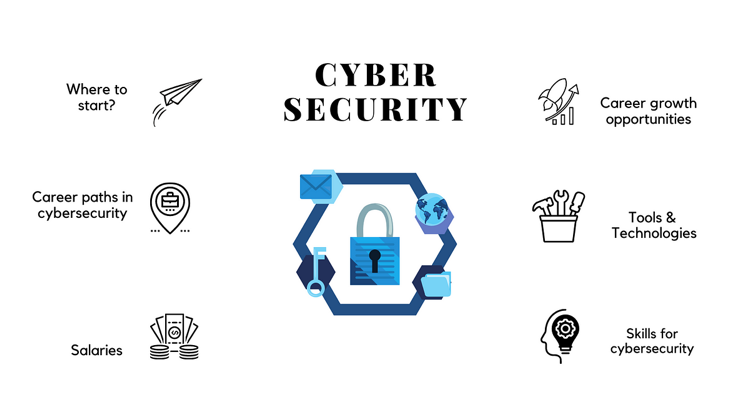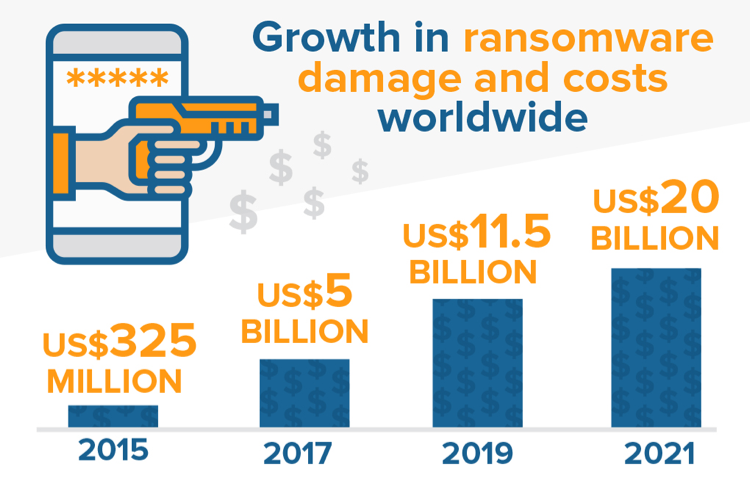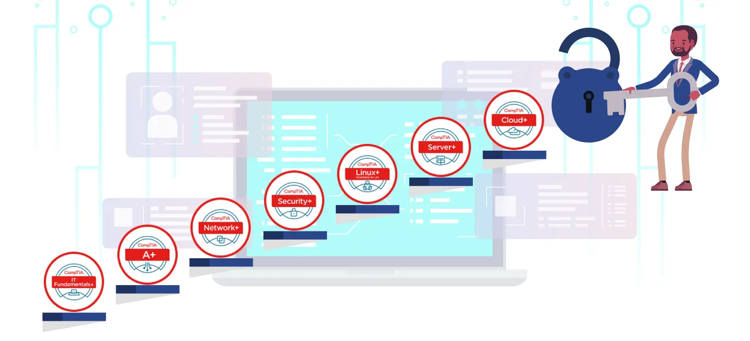Table of Contents
ToggleCybersecurity Certification Roadmap

A Comprehensive Guide to Launching Your Cybersecurity Career with the Best Certifications and Insights
Introduction:
In today’s digital landscape, where threats to data security loom large, the demand for skilled cybersecurity professionals has skyrocketed.
If you want to have a successful career in cybersecurity, it can be difficult to know which certifications to get and how to plan your path.
This article is here to help! It will give you valuable advice, a clear roadmap, and recommend the best certifications for beginners in cybersecurity.
Whether you’re a tech enthusiast, a recent graduate, or an IT professional looking to transition into cybersecurity, we’ve got you covered.

Prerequisites for a Cybersecurity Career: Setting the Foundation for Success
In today’s cybersecurity landscape, the demand for skilled professionals who can effectively tackle daily security challenges is on the rise. Companies like Philips, Siemens, Google, Microsoft, and GE, among others, are actively seeking cybersecurity experts to safeguard their digital assets.
Aspiring individuals are drawn to this field due to its demanding nature and equally rewarding opportunities.
To embark on a successful career in cybersecurity, certain prerequisites are essential.
If you want to work in a technical field, having a bachelor’s degree is usually necessary. But if you don’t have that degree, you can still get into the field of cybersecurity by getting special certifications that focus on the areas you’re interested in.
To start and progress in cybersecurity, it’s important to have a strong understanding of computer networks and know a lot about how operating systems work. These skills are like the building blocks that will help you get started and move forward in the world of cybersecurity.
The realm of cybersecurity offers a wide range of job roles, spanning from entry-level positions to executive management. It is advisable to begin your cybersecurity career at the entry level, gradually progressing to higher levels through relevant experience and certifications. This incremental approach ensures a comprehensive understanding of the field and provides a strong platform for future growth.
Before exploring the various job roles within the cybersecurity career path, it is essential to grasp the essential skills required to flourish in this domain. Building a solid skill set is crucial for continuous career advancement and success in the cybersecurity industry. By honing these essential skills, you will position yourself as a competent and sought-after professional in the field of cybersecurity.
Understanding the Cybersecurity Landscape
Before embarking on your cybersecurity journey, it’s crucial to grasp the evolving landscape and the ever-expanding job opportunities it presents. Cybersecurity professionals play a pivotal role in protecting organizations’ sensitive data, systems, and networks from malicious actors. From safeguarding against data breaches to preventing cyber-attacks, the scope of this field is vast and ever-growing.
The Cybersecurity Certification Roadmap

To establish yourself as a credible cybersecurity professional, acquiring the right certifications is paramount. Let’s explore the essential certifications that form the foundation of a successful cybersecurity career:
1. Certified Information Systems Security Professional (CISSP)
- A globally recognized certification for cybersecurity professionals
- Focuses on developing expertise in security and risk management
2. CompTIA Security+
- An entry-level certification covering fundamental security concepts
- Provides a solid understanding of network security and risk management
3. Certified Ethical Hacker (CEH)
- Equips professionals with knowledge of hacking techniques
- Enables ethical hacking to identify system vulnerabilities and strengthen defenses
Creating Your Personalized Roadmap

While the above certifications provide a solid starting point, your career roadmap should align with your specific interests, goals, and the cybersecurity domains you wish to specialize in.
Consider the following factors when developing your personalized roadmap
1. Identify Your Focus Area:
- Explore various cybersecurity domains such as network security, application security, cloud security, or incident response.
- Research industry trends and job market demands to determine the most sought-after specializations.
2. Tailor Certifications to Your Path:
- Leverage certifications that align with your chosen domain.
- Examples include Certified Cloud Security Professional (CCSP) for cloud security or Certified Incident Handler (GCIH) for incident response.
Beyond Certifications: Expanding Your Skill Set
While certifications provide credibility, acquiring additional skills is crucial to excel in the cybersecurity landscape. Consider the following areas to enhance your expertise:
1. Continuous Learning:
- Stay up to date with the latest cybersecurity trends, threats, and technologies through industry publications, webinars, and forums.
- Engage in continuous professional development to remain competitive.
2. Practical Experience:
- Seek internships, entry-level positions, or volunteer opportunities to gain hands-on experience.
- Participate in cybersecurity competitions and capture-the-flag events to sharpen your skills.
Crafting Your Personalized Cybersecurity Certification Roadmap
Based on your unique goals and aspirations, we’ll help you devise a personalized cybersecurity certification roadmap. We’ll provide practical guidance on selecting certifications that align with your interests and career objectives.
By considering factors such as prerequisites, specialization areas, and industry requirements, you’ll be able to chart a path that maximizes your growth potential.
Top 10 Cybersecurity Jobs in 2023: Career and Salary Information
Entry, Mid and Advanced Level jobs in Cybersecurity
Cybersecurity is a growing industry that needs skilled professionals to fill entry, mid, and advanced-level jobs. Cybersecurity jobs are in high demand and the demand is expected to grow by 18% over the next five years.
The cybersecurity field involves protecting computer networks and data from unauthorized access, use, or destruction. There are many different types of cybersecurity professionals with various skill levels. Entry-level cybersecurity positions require only a high school diploma or GED equivalent and some on-the-job training. Mid-level positions require an associate degree in computer science or a related field, one year of experience, and some specialized education courses. Advanced-level positions require a bachelor’s degree in computer science or a related field, three years of experience, and specialized education courses.
What Are the Benefits of a Career in Cybersecurity?
Cybersecurity is a growing industry with a lot of opportunities for growth and development. It is an industry that has the potential to be lucrative, but it also comes with a lot of responsibility.
Cybersecurity professionals are responsible for protecting their company’s information and data from attacks by hackers, viruses, or other cyber threats. These professionals typically work in teams with other IT specialists, such as software developers or programmers.
Here are some of the many benefits of this career path:
- The ability to make a difference in the world by protecting people and businesses from cyber threats.
- The opportunity to develop new skills and knowledge related to the field.
- A chance to work remotely or on location.
What Skills Do You Need to Become a Cybersecurity Professional?
To become a cybersecurity professional, you need to have a range of different skills. It’s important to understand the complicated processes in the industry and be good at critical thinking and problem-solving.
Here are some skills you need to become a cybersecurity professional
- Knowledge of Networks: You should understand how computer networks work, how they are created, and how they can be vulnerable to attacks.
- Understanding Software: It’s important to know how software works and be aware of its weaknesses or vulnerabilities.
- Familiarity with Cryptography: You need to have knowledge about cryptography, which is the science of secure communication, and understand how it is used in cybersecurity.
- Mathematics: A good understanding of mathematics is beneficial for various aspects of cybersecurity, such as encryption algorithms and statistical analysis.
- Programming Languages: Knowing how to program is essential for cybersecurity professionals as it helps in identifying and fixing security flaws in software.
- Networking Protocols: Understanding different networking protocols is important as they are used to transmit data securely across networks.
- Data Structures: Knowing about data structures helps in organizing and securing data effectively.
- Design Patterns: Familiarity with design patterns allows you to develop secure and robust software systems.
- Security Policies: You should have an understanding of security policies, which are guidelines for ensuring the security of information and systems.
- Legal Knowledge: Being aware of cybersecurity laws and regulations, including privacy laws and intellectual property laws, is crucial for protecting digital assets and avoiding legal issues.
- Computer Forensics: Knowledge of computer forensics helps in investigating and gathering evidence related to cybercrimes.
- Defensive Strategies: Understanding defensive strategies, such as penetration testing and vulnerability assessment, allows you to identify weaknesses in systems and prevent attacks.
In addition to these skills, it’s important to stay updated with the latest developments in cybersecurity. The field is constantly evolving, and professionals need to keep learning and adapting to new challenges.
According to the U.S. Bureau of Labor Statistics, there is expected to be a high demand for cybersecurity professionals, with around 1 million job openings predicted by 2023.
Cyber Security Career and Average Cyber Security Salary
Now that you have learned about the growth in the number of cyber security jobs and the opportunities the field of cyber security holds, let’s take a look at the different job roles available in this field.
There are several cyber security jobs available; the nature of these jobs varies mostly. These jobs can be categorized based on the following parameters:
- Your educational qualification
- Professional work experience
- Your area of interest. For example, some candidates are into coding and some others prefer managerial posts
- The cybersecurity certifications you hold
By analyzing the above parameters, you can choose the correct cyber security job that suits your area of expertise.
Let’s now take a close look at the typical cyber security career path and average cybersecurity salary of a few of the top-paying job roles from the long list of cyber security jobs.
Top Cybersecurity Jobs
- Chief Information Security Officer – CISO A Chief Information Security Officer (CISO) is a high-ranking officer who makes sure that information in a company is completely safe. CISOs create and maintain programs to manage risks and ensure information security. They also communicate with stakeholders and update them on information security concerns. Usually, people become CISOs after gaining experience in other cybersecurity jobs.
Skills for CISOs to become a CISO, it’s preferred to have a degree in computer science and an MBA due to the seniority of the role. To reach the position of a CISO, candidates need to have a strong skill set.
Here are some important skills:
- IT experience
- Supervisory skills for managing incidents
- Business expertise
- Good communication and presentation skills
- Risk management knowledge
CISO Certifications Most cybersecurity jobs require relevant certifications. The more certifications you have, the better your cybersecurity career opportunities. To become a CISO, the preferred certifications are Certified Information Security Manager (CISM) and Certified Information Systems Security Professional (CISSP).
CISO Salary According to PayScale, the average annual salary of a CISO in the United States is $166,329, and in India, it is ₹2,300,785.
Now let’s move on to the next important role in cybersecurity.
- Security Architect A Security Architect designs strong security systems to prevent malware attacks. They conduct vulnerability tests and provide technical support to other members of the security team.
Skills for Security Architects To become a security architect, it’s preferred to have a degree in computer science or information technology. Some essential skills include:
- Strong IT experience
- Experience in risk management
- Knowledge of network hardware configuration
- Familiarity with security protocols and cryptography
- Analytical and problem-solving skills
- Good communication and presentation skills
Security Architect Certifications To become a security architect, certifications like CompTIA Security+ and CISSP (Certified Information Systems Security Professional) can benefit your career.
Security Architect Salary According to PayScale, the average annual salary for a security architect in the United States is $125,630, and in India, it is ₹2,151,258.
Now, let’s look at the next job role on our list.
- Cybersecurity Engineer Cybersecurity Engineers plan security measures to protect organizations from cyberattacks. They safeguard networks and data, design cybersecurity platforms, and collaborate with other teams to ensure overall security.
Skills for Cybersecurity Engineers To become a cybersecurity engineer, you need a degree in information technology or computer science. It’s also recommended to have at least two years of work experience in the field. Other skills required include:
- Networking skills
- Understanding of operating system architecture and management
- Knowledge of programming languages like C, C++, Python, and Java
- Good communication and presentation skills
Cybersecurity Engineer Certifications like Certified Ethical Hacker (CEH) or CompTIA Security+ are beneficial for a cybersecurity engineer. Advanced certifications can be pursued based on experience level.
Cybersecurity Engineer Salary According to PayScale, the average annual salary for a cybersecurity engineer in the United States is $97,607, and in India, it is ₹683,339.
Now, let’s move to the next role in our list of cybersecurity jobs.
- Malware Analyst A malware analyst identifies and examines cyber threats like viruses, worms, bots, and trojans to understand their nature. They develop tools to protect against malware and document methods to avoid these threats.
Skills for Malware Analysts To become a malware analyst, you need a degree in information technology or computer science. It’s good to have at least two years of work experience in the field before becoming a malware analyst. Other skills required include:
- Knowledge of Windows, Linux, and UNIX operating systems
- Proficiency in programming languages like C and C++
- Familiarity with tools such as IDA Pro, OllyDbg, RegShot, and TCP view
- Strong communication and presentation skills
Malware Analyst Certifications Having a GIAC Reverse Engineering Malware (GREM) certification can be a plus for this position.
Malware Analyst Salary According to PayScale, the average annual salary of malware analysts in the United States is $92,880. According to Glassdoor, it is ₹5L in India.
Now, let’s move on to the next job role in our list.
- Penetration Tester A penetration tester, also known as an ethical hacker, is a network security consultant who identifies vulnerabilities in systems just like a hacker would. They develop new penetration tools and document the results of their tests.
Skills for Penetration Testers To become a penetration tester, you need 1-4 years of experience in information security. Other essential skills include:
- Strong networking skills
- Knowledge of Windows, Linux, and UNIX operating systems
- Proficiency in programming languages like C, C++, Java, Python, and Perl
- Familiarity with black box testing
Good reporting, communication, and presentation skills
Penetration Tester Certifications To excel in this role, certifications like Certified Ethical Hacker (CEH), Certified Expert Penetration Tester (CEPT), and Offensive Security Certified Professional (OSCP) are required.
Penetration Tester Salary According to PayScale, the average annual salary of a penetration tester in the United States is $125,630, and in India, it is ₹2,151,258.
Now that we’ve explored different cybersecurity jobs, let’s move on to the next designation on our list.
- Computer Forensics Analyst Computer Forensics Analysts work on cyberattack cases, gathering digital evidence and retrieving data. They specialize in recovering deleted, manipulated, or stolen data.
Skills for Computer Forensics Analysts A computer forensics analyst must have a bachelor’s degree and some work experience in the field. Other essential skills include:
- Knowledge of networking
- Understanding of cybersecurity
- Familiarity with law and criminal investigation
- Strong analytical skills with attention to detail
- Effective communication skills
Computer Forensics Analyst Certifications Computer forensics analysts can hold certifications like Certified Forensic Computer Examiner (CFCE) and Certified Computer Examiner (CCE).
Computer Forensics Analyst Salary According to PayScale, the average annual salary of a computer forensics analyst in the United States is $75,120, and it is ₹700,000 in India.
Now that we’ve covered various cybersecurity jobs, let’s understand how Simplilearn can help you pursue these top jobs.
- Application Security Engineer An application security engineer creates, implements, and maintains security measures for a company’s applications. They design and implement policies to protect against internal and external threats.
A typical day for an application security engineer involves reviewing previous findings, fixing bugs or vulnerabilities, and collaborating with other engineers to plan the next day’s work.
The salary for an application security engineer varies based on the company and experience level. The average salary ranges from £50,000 to £75,000 annually.
- Cloud Security Specialist With the increasing reliance on cloud technology, the demand for cloud security specialists is high. Their role is to protect data, systems, and networks from cyber-attacks. They design and implement security protocols for cloud-based platforms.
To become a cloud security specialist, you need to have knowledge of cloud platforms like Amazon Web Services (AWS), Microsoft Azure, or Google Cloud. Certifications like Certified Cloud Security Professional (CCSP) and Certified Cloud Security Specialist (CCSS) can enhance your career prospects.
The average annual salary for a cloud security specialist in the United Kingdom ranges from £45,000 to £80,000.
These are just a few examples of the top cybersecurity jobs available in the industry. Remember, the field of cybersecurity is dynamic, and new roles emerge as technology advances and threats evolve. It’s essential to continuously update your skills and stay informed about the latest trends in the cybersecurity domain.
Conclusion:
Congratulations! You’ve reached the end of your journey through the comprehensive cybersecurity certification roadmap.
Armed with knowledge about the best certifications for beginners, insights into salary prospects and job opportunities, and a personalized roadmap tailored to your ambitions, you are now ready to embark on your cybersecurity career with confidence.
Remember, the cybersecurity field is ever evolving, and continuous learning and professional development are key to long-term success. Stay curious, stay committed, and make a difference in the world of cybersecurity.
Are you ready to embark on an exciting journey into the world of cybersecurity? Start by exploring the recommended certifications and resources
Sign up for Cybersecurity Certification Roadmap form on our site and our experts will help you plan and audit your organization.


